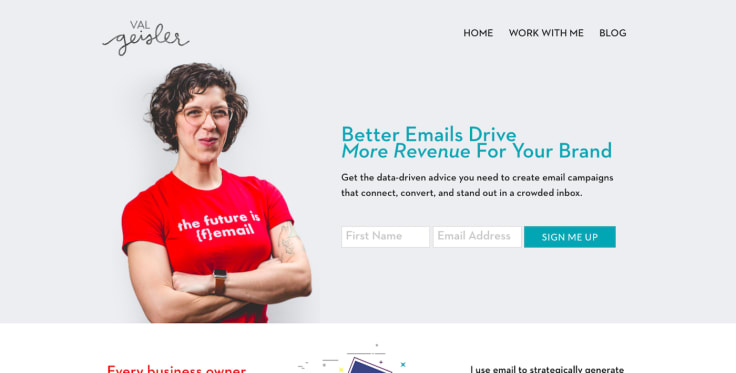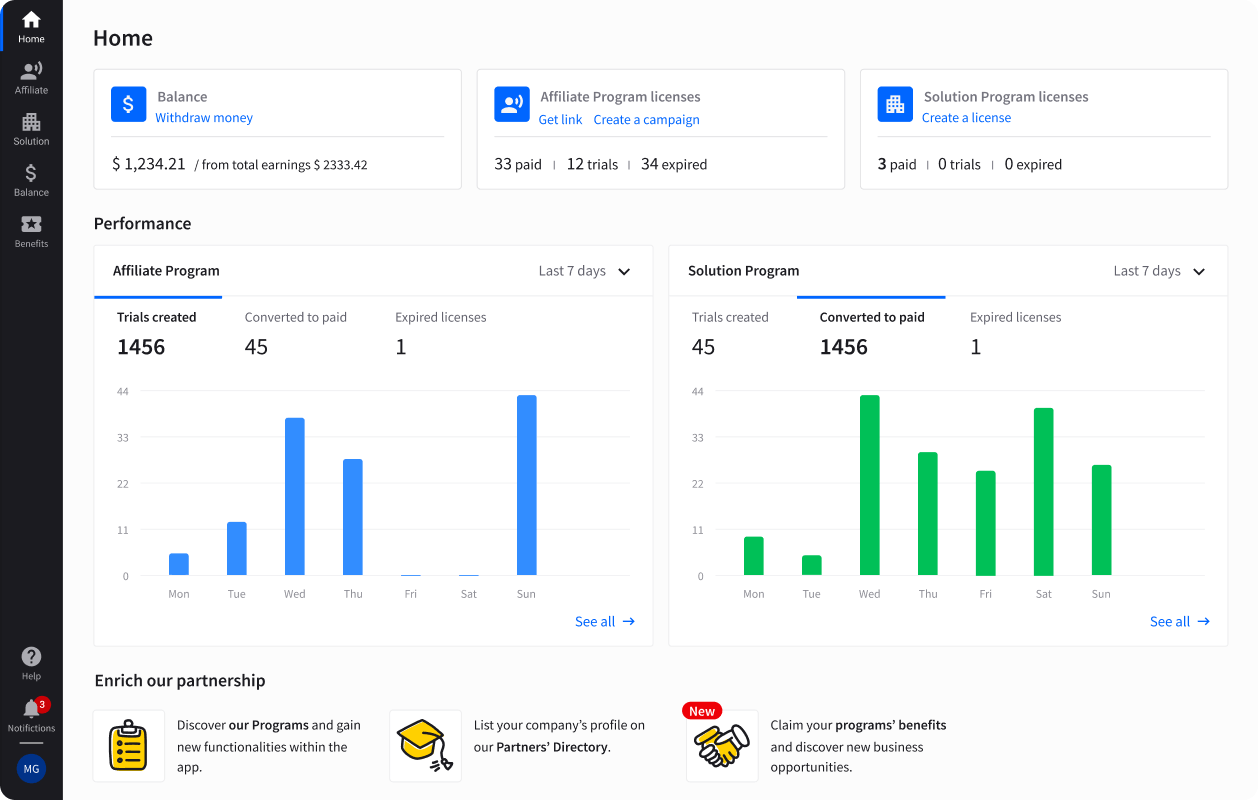Showing top 0 results 0 results found
Showing top 0 results 0 results found

As you advance in your professional career, you might have thought about going from putting all your efforts into one project to working as a freelance consultant, switching between a few different projects.
What are the advantages of this type of work?
The main pros of being a freelancers are: increased flexibility of work hours, the ability to choose which tasks you’re focusing on, and its affordability - you don’t need a big budget to start working as a freelance consultant.
And according to the market data, there’s no better time than now to become a freelance consultant. Source Global Research's study shows that the whole sector in the UK alone is now worth over £9.75 billion, with 40% of surveyed organizations splitting their share between traditional consultancy firms and independent freelancers.
So, why do they hire solo consultants? 59% of executives from the UK, Germany, Switzerland and the Netherlands stated that flexibility, price, and the quality of work are the main factors.
They’ve also listed top industries they would be looking to hire more freelancers in the upcoming months. It can give you some ideas on the areas you could focus on in your consultancy career:

Do you have experience in any of these sectors?
Let’s check how you can leverage it to become a business consultant in the guide below.
Step #1: Know what you’re good at
So, what qualifications do you need to become a freelance consultant? The short answer is: it depends.
Before you start advertising your business, think what unique skills you could offer to other business owners. Too broad expertise (in say, simply sales or marketing) could undermine your chances and make an impression that you’re jack/jane of all trades but a master of none.
What do freelance consultants I’ve met in my marketing career do?
- They’re sales experts helping others increase their revenue.
- They’re copywriters who write irresistible copy.
- They’re web developers creating websites for other freelancers.
So, what are YOU really good at? Is it email marketing or creating highly-converting landing pages? Pick you area of expertise and stick with it based on an existing market need.
One of the examples of this approach is an email marketer Val Geisler who focuses entirely on creating excellent email copy and sequences that help with reducing churn. Just take a look at her website:

She positions herself as a revenue-boosting emails specialist whose content will help you stand out with the content you send out. Her message is clear, and that’s how yours should be, too.
Step #2: Pick your niche
Next step involves taking an in-depth look at the existing market and checking what your options are.
Which parts of it are already saturated? Is there any area where there’s a high demand, and no one is filling up this space? There are all questions you should think about.
These were all the questions that one of our partners had to find responses to. Holiday Media is an interactive agency working exclusively with the tourism industry. They help hotel and camping owners get more people to book accommodation.
They also provide live chat training to their staff, including soft skills and technical workshops. It helps them boost their commission within our Solution Partner Program.
You can read more about Holiday Media’s story on our blog.
Step #3: Know what you’re worth
Once again, there are two ways to go about setting a price on your services.
You can set up an hourly rate and estimate every project as you go. This approach is perfectly fine if you’re starting out, but can be problematic as you become more experienced.
The main issue is the fact that as you move up in your career, things will start becoming easier for you and they will take less and less time. It can mean that, i.e., while preparing a marketing strategy took you 16 work hours 2 years ago, it only takes you 8 hours.
I guess you understand how it can affect your revenue, right?
You can also price your work based on value, and I highly recommend you start doing that right from the very beginning. You can do it by focusing on the additional income your work will bring for a company you collaborate with.
Let me give you an example.
Imagine that you’re working with a business which gets 200 new signups each month. Each of these new customers pays them a $20 a month (billed annually). They hire you to increase the conversion rate on their website by 10% which will bring them an additional $4,800 a year. Would charging them $1,200 (a quarter of that) be fair based on the business value of your services? I will let you decide on your own.
Another good pricing strategy for freelance consultants is offering your clients 3-tier bundles with the first being the bare minimum, and the second and third one - the extensions. Here’s how Prospero’s Ran Segall explains this pricing policy on the Invision blog:
What I usually do is called 3-tier pricing, which means I offer my clients 3 packages. And it doesn’t really matter — it can be a branding project. It can be a web design. It can be a product design. We can apply this to any project that you’re doing.
The first package, the most basic one, is actually what they’ve asked you to do, the minimum requirements that it takes to get the project done. The second one is the awesome way to do this. How can you do this to the best extent, spend more time, more research, more effort to make the project even better? And the third option actually includes things that they didn’t even ask you, but you, from understanding their business from talking to them, you know that they can bring them value.{{< /block/quote >}}
As you can see, knowing how to upsell your work is absolutely crucial if you want to become a valued freelance consultant.
Step #4: Build up your network as well as your skills
There are at least a few ways to go about building up your network. It is a broad term, and I would like to use it to depict both your customers and your collaborators.
If you look it up, you’ll find countless guides on methods for finding your first customers. I’d like to focus on the most effective ones:
- Use your existing relationships before you start building new ones. Do you have any ex-work colleagues you could contact? Anyone among your friends has their own business where you could help out? Don’t be afraid to ask if they would need your services.
- Create a great business proposal and a simple landing page (more on that below) that will serve as both a sales asset and a portfolio. Show off your skills and previous experience, and highlight things you could do for potential business partners.. Make a list of people you’d like to work with and start emailing them one by one.
As you’re working on your unique selling proposition, you may notice that you lack specific skills that will help succeed in the industry/market of your choice. It may also happen that you simply need to strengthen a certain competence.
Now, you’ve got two ways to go about it.
You can sign up for a local or an online course and ramp up your expertise. When you’re looking for training, check who is hosting it, and preferably speak to people who already graduated to check if it’s worth your time. I highly recommend classes offered by platforms such as Udemy, Skillshare, and Coursera. They’ve helped me master the skills I was interested in.
The second option is to expand your professional network and look for people who can do things you’re not sure about.
Are there any web designers you could reach out to help you out with your website? Any social media specialists that will help you create a Twitter strategy? I’d go for fellow freelancers as well - you're not only able to connect with people who (at least potentially) have the same problems and experience as you, but they can also support you in getting your first assignments by inviting you to work with them on various projects. It’s a win-win situation in both cases.
So, where you could look for potential business partners to become a part of your network? I’ve written more about it in my article on business outreach, but here are few places you could check:
All of these will help you connect with like-minded people who could become your first collaborators or even customers.
Step #5: Set your website and social presence as a freelance consultant
Now, it’s time to focus on your website and social presence. Remember that - as I’ve mentioned above - your site will also serve as your portfolio, a place where you’ll present your USP, and the first point of contact. Make sure that it is easy to understand and navigate.
Remember that you don’t need to make your website overly complicated. You can draw your inspiration from Merci Victoria Grace who is a former Slack’s Director of Product:

Her page is simple yet informative. Clearly-presented services, a more or less detailed bio, and a contact form are a must.
Step #6: Create a business proposal and start your business outreach
There are also tons of advice on how to create a compelling business proposal.
I recommend instead of just following it, you carve your own way. The one that will help you reach new customers and what’s even more important, keep them in the longer run.
Here are few tips on things you should involve in your business proposal though:
- Personalize it and show that you know the company's problems,
- Talk about the benefits of employing you and real-life results,
- Include your pricing.
Don't forget about the design too - you can create a project yourself, or use tools like PandaDoc or Canva to make it look great.
Once your proposal is ready, and you have a list of your potential first customers (see my advice the section about building up your network above), you can start your email outreach. I've written about creating powerful business messages in one of my latest articles on this blog.
Further reading → Sales 101: Why It Is Time to Ditch Cold Email, and What to Do Instead
Step #7: Learn to say ‘no’
Last and not least, learn when and how to say ‘no’.
When you’re just starting out, it may be tempting just to say ‘yes’ to different projects as they come. It takes some experience to learn that most of them are distractions to your primary goal, and very few will help you get to where you want to get.
So, how you can assess which projects are worth your time and attention? A good rule of thumb here can be whether you would proudly show them off in your portfolio and whether they will help you achieve your professional goals (be it gaining more customers or focusing on a specific market niche). If they don’t fit any of these categories, you should probably let them go.
Or better still, why don’t you reach out to someone from your business network, and recommend them for the project you're about to reject? They may do the same for you next time.
Over to you
I’d love to hear about your experience working on freelance projects.
What were the parts that you’ve most struggled with? Were there any things you wish you’d know right from the start?
Let’s discuss it in the comments below.



